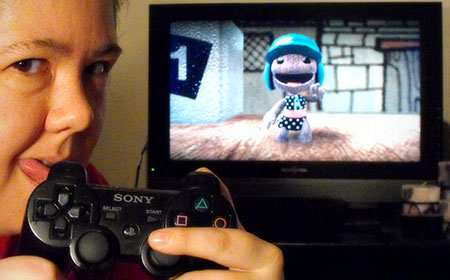Here's a fun little article from Onlinecollege.org with some good reminders about how behaving badly can negatively impact your career. Enjoy!
13 Habits That May Be Sabotaging Your Career
http://www.onlinecollege.org/2012/07/18/13-habits-that-may-be-sabotaging-your-career/Everyone has bad habits. Smoking, driving too fast, overeating, giving in to stress; no matter what the habit is, we all know that we need to break them, if only we could find the motivation. How’s this for motivation? Some of your bad habits may actually be sabotaging your career. Whether it’s office gossip or playing around on Facebook, it’s time to kick these bad habits to the curb. Read on, and discover which bad work habits may be getting in the way of your next promotion.
-
Gossip:
If you answer “How was your day?” questions with gossip or complaints about your co-workers or clients, it’s a bad sign. Gossip isn’t productive for work, and it can really make you look like a negative person.
-
Blaming others:
Before you point out why someone else is making your life so difficult, take the time to consider what you might have done better. Chances are, it’s not all their fault, or any at all. Remember that you can’t control what others do, only how you deal with those actions. Step up to the plate and be more proactive and responsible for your own work life.
-
Blowing off deadlines:
It’s tempting to turn things in “just a little late,” but doing so is career sabotage. Your boss and colleagues learn that they can’t count on you, and it’s frustrating for others that are waiting on you. Show that you respect their time by meeting deadlines regularly and communicating clearly and early on the rare occasions when you can’t.
-
Procrastination:
This one goes hand in hand with blowing off deadlines. Push things to the side too often, and of course, you’ll be late. But not only that, you’ll look bad. No one is impressed by your big show of getting it all done at the last minute. They’d be much more impressed if you carefully planned your time and productivity to get things done on time or even early.
-
Never letting go of work:
You might assume that working 24/7 will help you get ahead, but so often, the opposite is true. It’s important to unchain from work, taking regular breaks to become more productive. You’ll be able to come back with a fresh outlook and do a better job.
-
Zoning out online:
Sure, just about everyone has Facebook, but that doesn’t mean you have to connect at work. Kill the bad habit of checking your favorite sites before settling in for work. You’re wasting precious time, and if your coworkers see what you’re doing, you’re putting off a bad impression. Avoid getting sidetracked; just focus on work during work time.
-
Poor communication:
Your coworkers like to be informed, not left in the dark. You don’t need to inundate them with email updates, but be sure that if they’re waiting on you for something, they know what the status is. Forget to do this, and you’ll come off as disorganized and undependable.
-
Poor health and hygiene:
A sloppy appearance can really affect you at work. Dressing poorly or not keeping up with your hygiene sends a message that you don’t take your job seriously. Take a look around and see what your coworkers are wearing. Maintain a level of dress that matches or exceed what everyone else is doing so that you can put off a professional appearance.
-
Keeping a low profile:
Whether you’re shy or busy, or just can’t be bothered, keeping a low profile is just not a good idea. Being an unknown in your organization gets you nowhere, where making connections and allowing your work to be recognized can open you up to opportunities. Get out from behind your desk, interacting with others, volunteering for new projects, and spending more time being visible at work.
-
Not taking responsibility:
No one likes a prima donna at work. Workers who refuse to step out of their job description or keep iron-clad hours even in the busiest of seasons don’t win any favor. Sure, it’s important to keep yourself from being overwhelmed, but you’ve got to be a team player, too. Be careful not to let anyone hear you say, “That’s not in my job description.” Instead, be willing to pitch in when needed.
-
Poor email etiquette:
Email is so prevalent these days, most people send messages without a second thought. But if you’re not proofreading, you’re really doing yourself a disservice. Stick to professional email etiquette, take your time to make sure your message is correct (and being sent to the right recipients), and project a professional email image.
-
Lateness:
Punctuality is key to professionalism. No one likes a late worker, and if you’re late to meetings, it’s really rude. Being late projects a message that you think your time is more valuable than others’ (it’s not). Lateness makes you look like an unreliable, inconsiderate person. Plan ahead, and do your best to be punctual on a regular basis. If you know you’re not going to make it on time, be sure to let others know, and apologize when you get there.
-
Resisting change:
Work for a company long enough, and things are bound to change. Sure, you may be set in your ways, but if you resist progress at work, you just might get left behind. Whining about new processes, technology, and developments makes you sound like a curmudgeon. Be a team player and get on board with progress at work.














 When one looks closely, the process of transformation does not appear to be fun. How often do we wax poetic about transformation, using the caterpillar to butterfly metaphor and forget to mention that the caterpillar retreats into its cocoon to digest itself from the inside out (temporarily becoming a soupy mush and letting its body die) before it emerges a gorgeous winged creature? And what about those scenes from movies like
When one looks closely, the process of transformation does not appear to be fun. How often do we wax poetic about transformation, using the caterpillar to butterfly metaphor and forget to mention that the caterpillar retreats into its cocoon to digest itself from the inside out (temporarily becoming a soupy mush and letting its body die) before it emerges a gorgeous winged creature? And what about those scenes from movies like